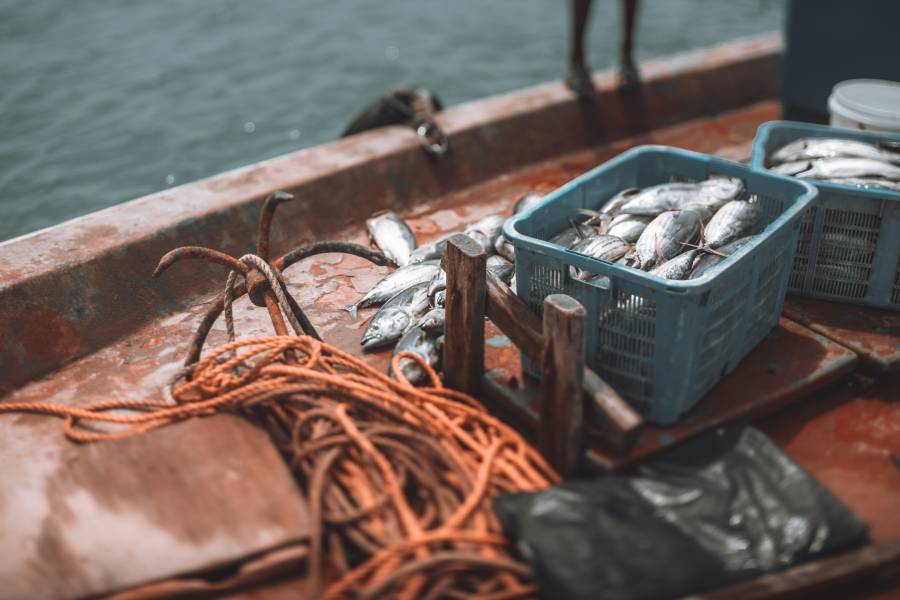Inspirational
The Tuna Tycoon


In the 50s, 7-year-old Keh, a Fukien kid, unable to bear a life of poverty in Shanghai, stowed away under a lifeboat of a big ship bound for Manila. He sold newspapers and empty bottles (dyaryo-bote) along the nightclub areas of Malate, and slept on a bench in Plaza Ferguson.
Keh was tough and full of ambition. After five years of selling junk, he became a waiter in a five-star Binondo restaurant. There, he was able to get the attention of important Chinese businessmen, using efficiency and a smile. Later, a bank manager took him in as a janitor and offered him free schooling. He said school was a waste of time. He would rather learn from experience. So, he became a trainee under a young bank employee who taught him English and bank clerk work.
Little did Keh realize that he would become a tycoon someday. He just plodded along, putting one foot in front of the others, sheer hard work without any thought of the future. The rest was opportunities.
The bank manager endorsed him to a friend who had a tuna ship. He quickly learned the numbers in tuna trading. In a few years, totally frugal, he had enough savings to become a tuna trader, selling to wealthy Chinese buyers. In time, he bought equity in a tuna cannery in Zamboanga City. And in another five years, he owned the cannery. In time, he had three canneries. Keh, the uneducated Fukienese who spoke broken English, was now a tuna tycoon. He married an educated Chinese girl, Julia, from Binondo who took care of all the numbers for him. They had two lovely boys, Kenneth and Marvin.
Now that his empire was growing rapidly, he sent his two kids to Harvard Business School, so they could take over. He was getting old and tired. Kenneth and Marvin both graduated cum laude.
It took the kids just one year to learn the ropes, after which Keh turned over his vast empire to them. Kenneth took care of operations, and Marvin’s marketing and finance. Keh and Julia took a long world tour as the two kids managed the empire.
But alas, when Keh returned home, all was not well. Within six short months, his empire was reduced by a staggering 70%. He found out that the two kids introduced a lot of ‘Harvardian’ business principles. His sixth business sense was different. He grew up on solid ground with simple street business sense. He did not understand the high-tech American business style up in the clouds.
Keh learned that the American business culture was destroying his empire. He mostly dependent on instinct, on a sixth sense not found in books. He built his empire with a Chinese business instinct he learned on the streets. The theoretical Harvard wisdom of the two kids was very different from the experiential Binondo wisdom of the empire-builder.
Keh also noticed that the two kids had no empathy for people in their business dealings. Everything was cold and straight. What is yours is yours, what is mine is mine. In his world, Keh was more human. What is mine, I can share if needed. Keh realized that Harvard did not teach business empathy – less mercy and more accounting.
The Binondo Chinese community is very different. You can borrow from a fellow Chinese based on your person. Trust is basis of loans, not collateral. If you fail to pay, you are forever banished from the entire Chinese community. This is the greatest pressure for borrowers to pay. Very few fail to pay because they know the dire consequences. Lesson learned – Western business practices may not always apply to Eastern culture. Harvard may not always fit Binondo ways.
The Binondo Chinese are instinctive entrepreneurs. My classmate worked as a young aide of the legendary Lucio Tan. He says that he and Lucio went to a two-star restaurant to see if they could buy the firm of a Chinese businessman. Lucio asked a lot of questions but was not taking notes. After a 30-minute interview, Lucio took out of his wallet a piece of yellow paper so torn, it was hard to unfold. In that handwritten paper was Lucio’s entire empire. He studied it for a minute, then said, “Okay, I’ll buy it.”
Eventually, the tuna canneries were shut down. The two kids were given enough to go on their own. Keh and Julie lived a simple happy life in a small fishing village on an island near Cebu City. Keh saw himself in the marginal fishermen, buying fishing boats and nets for them which they paid off slowly from income. In return, they would occasionally give this ex-tuna-tycoon a three-foot yellowfin.














